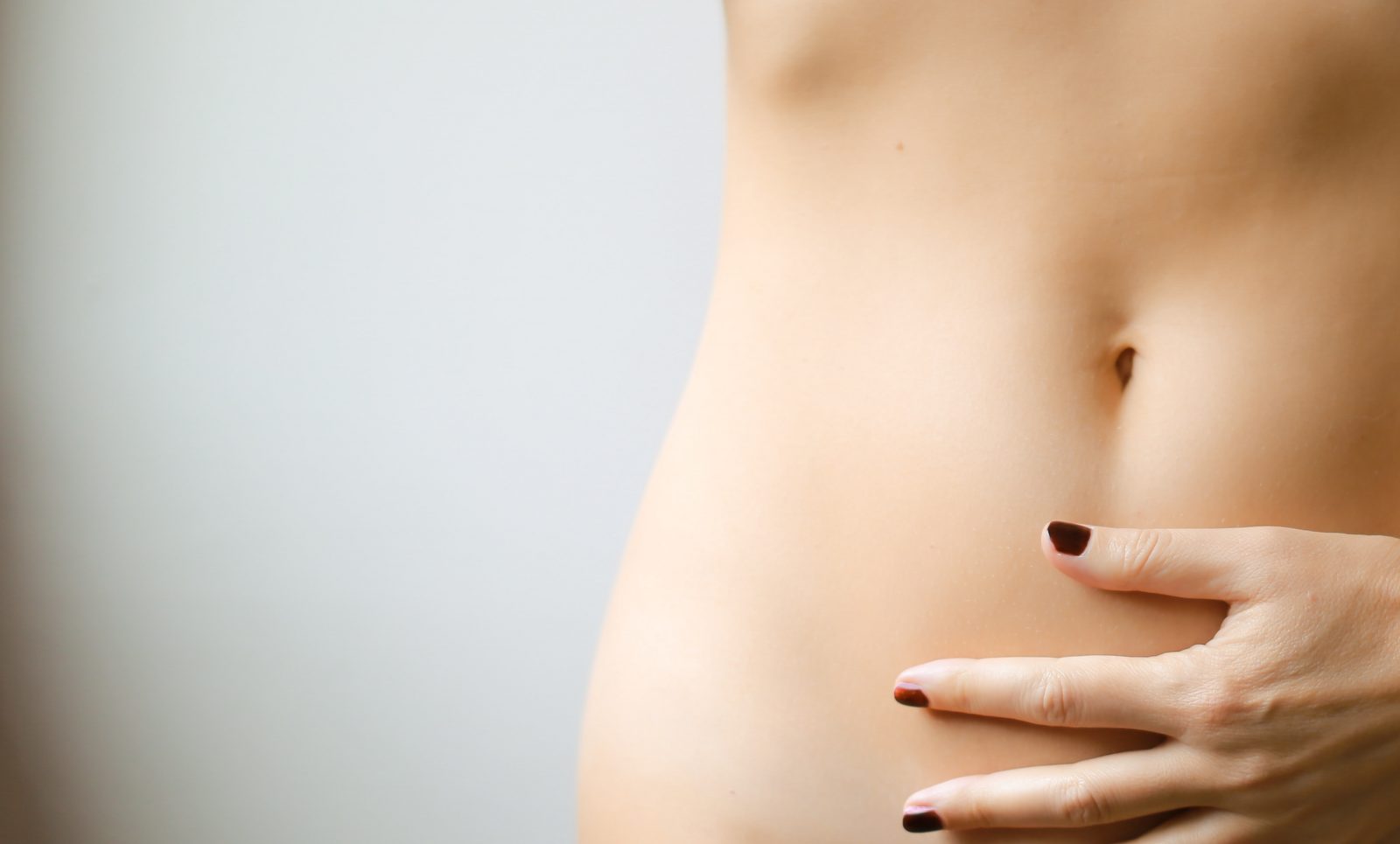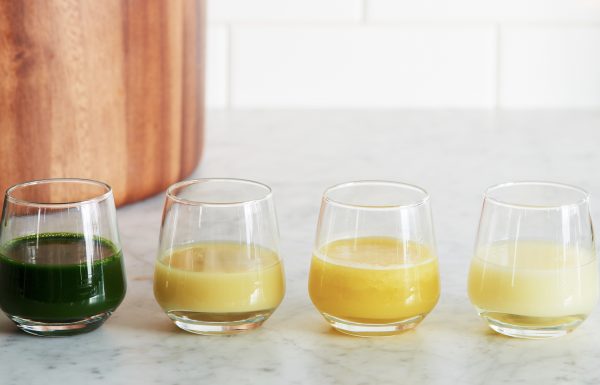How well your gut functions plays a huge role in how your skin functions too. Knowing this would have saved me years of dermatology appointments as a teenager. Looking back, my SAD (standard American diet) of sugar and processed foods affected my microbiome and ultimately my skin. What I wish my dermatologist would have told me–what’s happening on the inside usually presents itself on the outside.
So the first step when talking about gut health and clear skin is to focus on your diet and even try an elimination diet if you think you may be allergic to certain foods… but, this article isn’t going to bore you with the recommendation to stop eating junk and eat more fruits and vegetables. We all know that. However, I’d like to present a different argument: you are not only what you eat but you are what you absorb as well.
A happy gut has no symptoms. If anything is off, I find it will often show up on my skin first. So it’s important to know how it functions so you can give your gut some TLC before things get out of whack. Its primary function is to break down molecules into smaller pieces. This way it’s easier for your body to absorb nutrients like vitamins and minerals. These nutrients are what our cells rely on for growth, repair, and normal functioning.
I like to think of my digestive system as an extension of our skin, but internally. When things aren’t acting appropriately in your gut, your hair, nails, and skin are usually the first places in which we notice changes. This is because when nutrients are in short supply, the body drives nutrients towards essential organs like the heart, brain, and liver.
The upside? Unlike other organs, you can easily touch, see, and check your skin’s health daily, so it’s a great indicator of what’s going on inside your body. Here are a few tips to make sure everything is balanced, both inside and out.
Put a Lemon In It
Drink more water. It supports the digestive tract from start to finish. It sounds so simple but not all water is created equally. Water with added electrolytes can help you stay hydrated for longer. Electrolytes are electrically charged minerals such as sodium, potassium, calcium, and magnesium. Citrus fruits, such as lemons and limes, have a lot of electrolytes. So does coconut water. You can add these to your water to make sure you’re *extra* hydrated. Just don’t reach for that artificial-flavored-sugar-filled drink. Try a good powder mix like Age Quencher that easily mixes with water instead.
Strengthen Your Internal Skin
Supplementing collagen is particularly helpful if you have damage or inflammation already to the lining of your gut. Glutamine, one of the amino acids in collagen, is the key amino acid for preventing leaky gut syndrome. This condition may allow food and waste particles to pass into the bloodstream, causing inflammation or even skin rashes. The easiest way to supplement? Drink more bone broth. Or mix a collagen packet with your coffee.
Digestive Enzymes
Probiotics usually get all the limelight when discussing gut health. I’m here to tell you digestive enzymes are the unsung heroes. A lack of digestive enzymes can reduce the amount of fat and protein that your body absorbs–leaving your skin feeling dry and dull. I prefer them in a capsule taken with the largest meal of the day. My go-to? RMS Beauty Within Digestive Enzymes, which is formulated to help you digest the foods that we indulge in like wine, chocolate, gluten, and sugar. Not a pill fan? Try eating more pineapples, bee pollen, or papayas that contain natural food enzymes. Sounds like a smoothie or juice in the making!
Your Body Isn’t Just You
I can’t speak to gut health without talking about the microbiome and the importance of probiotics. It’s wild that our bodies aren’t just made up of our own cells, studies show it’s only about half. The rest? Trillions of bacteria, fungi, protozoa, and viruses. This microbiome does more than help with digestion. They help keep your bad bacteria in check. Unfortunately, our modern lifestyle makes it hard for your microbiome to flourish. Stress, lack of sleep, bad food choices–all contribute to an imbalance of good bacteria. That’s where probiotics can help get things back on track. My tips for increasing your probiotics? Eating your probiotics is always best. Try fermented and prebiotic foods like yogurt, miso, kimchi, and even sourdough bread. As for supplements –since our bodies are so complex, it’s hard to know which strains and how you might respond well to. Start with one that has a simplified list of strains like 6 or less. Then work your way up. And be sure to switch up your supplement like you do your shampoo. It’s important to give your body an array of strains, not the same ones all the time. Like most things in life, balance and diversity are key.






